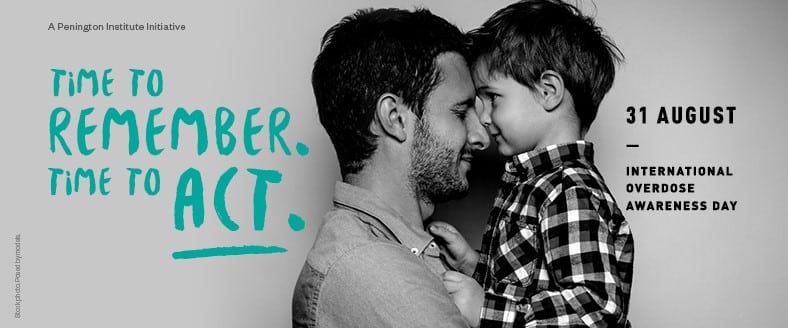The former Arrow regular is just starting the road to sobriety, and the veteran actor has successfully stayed on that path for thirty-five years.
In 2018, a combination of “depression, anxiety, alcoholism, & addiction” forced Haynes into a California hospital. Yet he describes his recovery as “the most beautiful struggle I’ve ever had to go through.” In an earlier interview, the actor said that because of a combination of his coming out as gay in 2016, a divorce after only a year of marriage, and the death of his mother, he “fell apart” and his “brain broke.” But after waking up in a Los Angeles hotel room after a week-long bender, the actor has been on the mend. He recently completed a four-month treatment plan and celebrated six months of sobriety.
Meanwhile, the 55-year-old McDermott said his long-term sobriety was his “greatest accomplishment.” He credited medical treatment and the support of his adoptive mother for his recovery. “I’ve also seen many who didn’t make it and that truly breaks my heart,” he added. In 1967, then 5-year-old McDermott witnessed his mother’s violent death. Her boyfriend at the time, John Sponza, initially insisted her death was a suicide. But authorities re-opened the investigation and ruled her death a homicide.
McDermott won a Golden Globe for his portrayal of lawyer Bobby Donnell on the long-running ABC series The Practice.
Some Medical Facts About Addiction
Roughly twenty million Americans struggle with substance abuse addiction. Alcohol Use Disorder (AUD) is responsible for about two-thirds of these issues. Often, depression, anxiety, grief, and other negative emotions prompt people to self-medicate. Unfortunately, these people end up with two problems instead of one. These issues are difficult to treat.
Despite all these difficulties, various treatment options are available. Yet over ten years after a breakthrough federal law addressed this issue, many health insurance companies still refuse to cover addiction treatment costs. More on that below.
Opioid painkiller addiction is a related issue. One of the latest revelations involves opioid prescriptions and wisdom teeth removal. In 2017, dentists wrote over eighteen million opioid painkiller prescriptions following these relatively simple procedures, even though an ibuprofen/acetaminophen regimen more effectively manages dental pain.
“It could be like 50,000 kids each year becoming new chronic opioid users after just something simple like a wisdom tooth extraction,” remarked Dr. Chad Brummet, who is a researcher at the University of Michigan. More on that below as well.
Addiction and Health Insurance Matters
The 2008 Parity Act was designed to help not only Hollywood stars like Messrs, Haynes and McDermott, but also everyday Americans who struggle with addiction. Financial requirements and treatment limits must be the same for mental illnesses as medical or surgical conditions. Furthermore, the overall mental health and addiction benefits must be no less restrictive than med/surg benefits. Legal help is available not only for individuals who have not received benefits.
Legal help is available not only for indivdiuals who have not received benefits. Providers who have not received payment are also eligible to file claims. Some specific issues include:
- Lower reimbursement rates for mental health services as opposed to med/surg services,
- Burdensome or unrealistic time limits and other treatment restrictions,
- Illegal “pre-payment review” insurance audits, and
- Third-party cost containment issues.
Legal actions in areas like this do more than obtain needed compensation for actual damages. They send a strong warning to insurance companies that this patient-unfriendly conduct is intolerable and illegal.
The Legal Response to Opioid Addiction
Opioid addiction is definitely the greatest health crisis of the 21st century, and it may rank alongside the post-World War I flu epidemic and some other episodes as one of the worst public health crises ever. According to the Centers for Disease Control, the opioid epidemic has caused the average life expectancy to dip in two of the past three years. That has not happened since the aforementioned Spanish Flu pandemic.
There are many responsible parties. As mentioned above, many doctors prescribe powerful pain pills in situations where something weaker would be just as effective.
Furthermore, many drug companies mischaracterized the danger of addiction. This dishonesty coincided with a federal government rule which allowed these companies to use flashy television ads which directly market their wares to consumers.
Finally, many shipping companies transported millions of pill bottles and did not ask questions. Under federal law, shipping companies have a duty to act responsibly when shipping opioid pain pills and other controlled substances.
To combat this epidemic, many top attorneys represent governmental units harmed by the opioid epidemic. These taxpayer-sponsored groups unfairly carried the financial burden of the opioid crisis, such as expanded treatment in public hospitals and stepped-up law enforcement presence. In many cases, these are services that the governmental unit could not really afford.
Compensation is available for governmental units, and it’s also available for families marred by opioid addiction and the fallout of addiction.
Many times, mental health and addiction issues do not get the respect they deserve in the insurance and medical community. For a free consultation with an experienced personal injury attorney in New York, contact Napoli Shkolnik PLLC. You have a limited amount of time to act.
(Featured image credit to Pennington Institute)
